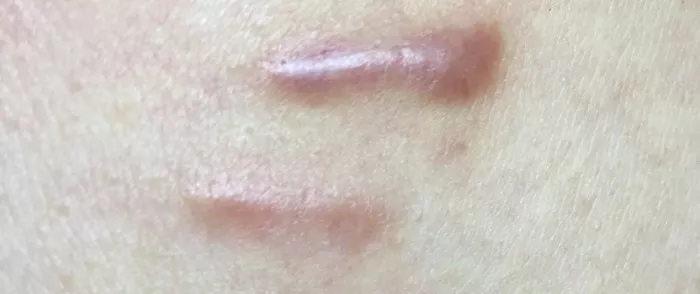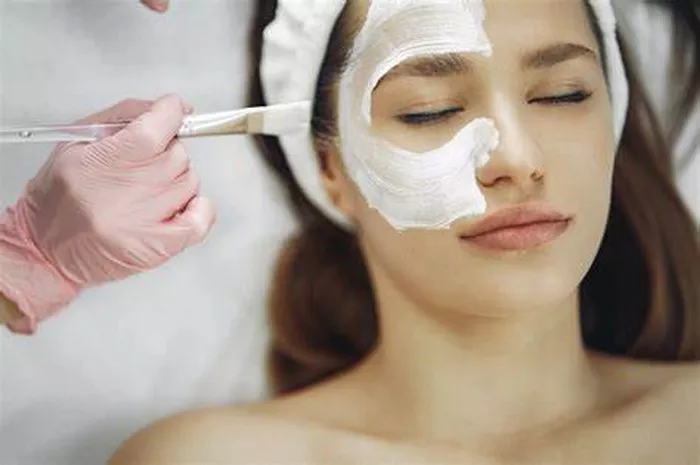Scarring is a natural part of the healing process after an injury or surgery. While anyone can develop scars, some skin types may be more prone to scarring than others. In this article, we will explore the skin types that are more prone to scarring and what you can do to promote proper wound healing and minimize the risk of scarring.
1. Oily Skin
Oily skin is one skin type that is more prone to scarring. This is because excess oil production can clog pores and lead to acne breakouts, which can increase the risk of scarring.
To minimize the risk of scarring for oily skin types, it is important to maintain a consistent skincare routine that includes cleansing the skin twice daily with a gentle cleanser, using non-comedogenic moisturizers and sunscreen, and avoiding harsh skincare products that can irritate the skin and cause breakouts.
If you do develop acne breakouts, it is important to avoid picking or squeezing the pimples, as this can increase the risk of scarring. Instead, talk to your healthcare provider or a dermatologist about your options for acne treatment, which may include topical or oral medications, laser therapy, or other medical treatments.
2. Dry Skin
Dry skin is another skin type that is more prone to scarring. This is because dry skin is more prone to developing cracks and fissures, which can delay the healing process and increase the risk of scarring.
To minimize the risk of scarring for dry skin types, it is important to keep the skin moisturized and hydrated. This may include using a gentle, fragrance-free moisturizer on a regular basis, avoiding hot showers and baths, and using a humidifier to add moisture to the air in your home.
If you have a wound or injury, it is important to keep the skin around the wound moisturized and protected. This may include using a sterile bandage or dressing to cover the wound and protect it from further injury or irritation.
3. Sensitive Skin
Sensitive skin is another skin type that is more prone to scarring. This is because sensitive skin is more prone to developing inflammation and irritation, which can delay the healing process and increase the risk of scarring.
To minimize the risk of scarring for sensitive skin types, it is important to use gentle skincare products that are free from fragrances and other irritating ingredients. This may include using a gentle cleanser, moisturizer, and sunscreen on a regular basis, and avoiding harsh skincare products that can cause irritation and inflammation.
If you have a wound or injury, it is important to keep the skin around the wound clean and protected. This may include using a sterile bandage or dressing to cover the wound and protect it from further injury or irritation.
4. Aging Skin
Aging skin is another skin type that is more prone to scarring. This is because aging skin is more prone to developing wrinkles, fine lines, and other signs of aging, which can make scars more noticeable.
To minimize the risk of scarring for aging skin types, it is important to maintain a healthy lifestyle that includes a balanced diet, regular exercise, and adequate sleep. It is also important to use skincare products that are specifically designed for aging skin, such as anti-aging creams and serums that contain ingredients like retinol, vitamin C, and hyaluronic acid.
If you have a wound or injury, it is important to keep the skin around the wound clean and protected. This may include using a sterile bandage or dressing to cover the wound and protect it from further injury or irritation.
5. Darker Skin Tones
Darker skin tones are another skin type that is more prone to scarring. This is because darker skin tones are more prone to developing hyperpigmentation, which can cause scars to be more noticeable.
To minimize the risk of scarring for darker skin tones, it is important to avoid picking or squeezing pimples or other blemishes, as this can increase the risk of scarring and hyperpigmentation. It is also important to use skincare products that are specifically designed for darker skin tones, such as products that contain ingredients like vitamin C, niacinamide, and kojic acid, which can help to brighten and even out skin tone.
If you have a wound or injury, it is important to keep the skin around the wound clean and protected. This may include using a sterile bandage or dressing to cover the wound and protect it from further injury or irritation.
Conclusion
In conclusion, several skin types may be more prone to scarring, including oily skin, dry skin, sensitive skin, aging skin, and darker skin tones. To minimize the risk of scarring for these skin types, it is important to maintain a healthy lifestyle, use gentle skincare products, avoid picking or squeezing pimples or other blemishes, and protect the skin around wounds and injuries. If you are concerned about the appearance of a scar, talk to your healthcare provider or a dermatologist about your options for scar treatment. There are many effective treatments available, including laser therapy, steroid injections, and surgical scar revision, that can help to minimize the appearance of scars and improve skin texture and tone.
[inline_related_posts title=”You Might Be Interested In” title_align=”left” style=”list” number=”6″ align=”none” ids=”4295,4285,4180″ by=”categories” orderby=”rand” order=”DESC” hide_thumb=”no” thumb_right=”no” views=”no” date=”yes” grid_columns=”2″ post_type=”” tax=””]


































